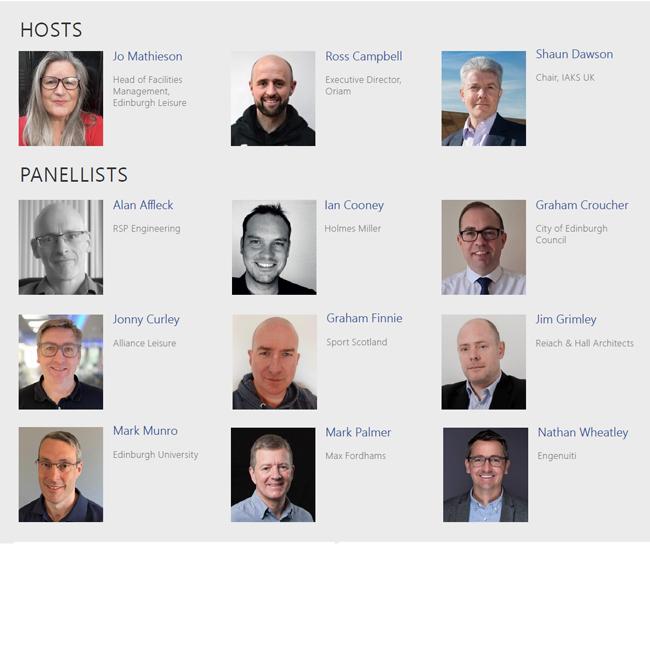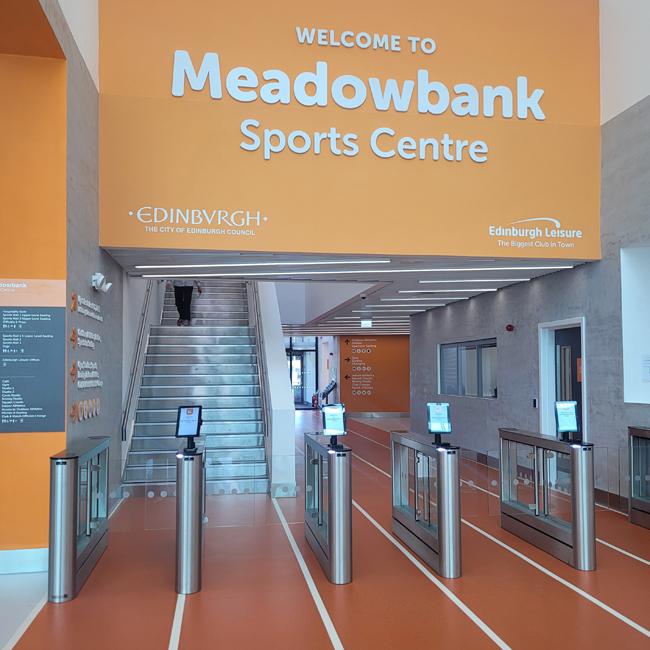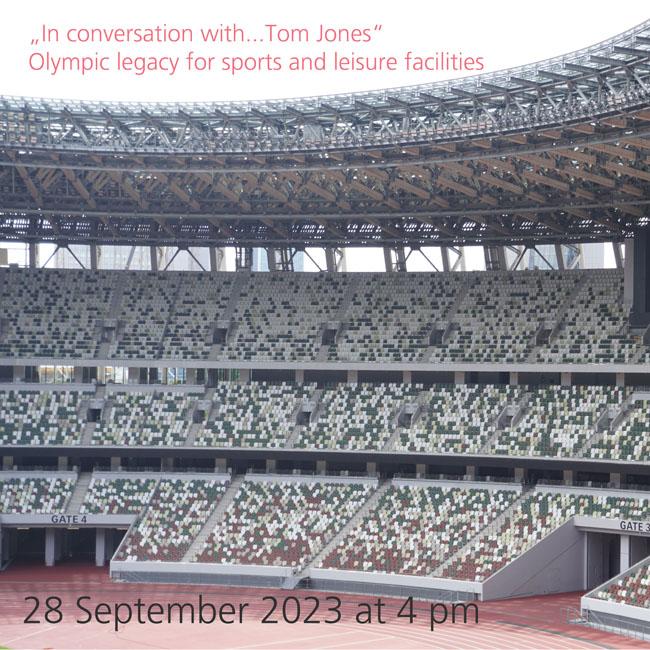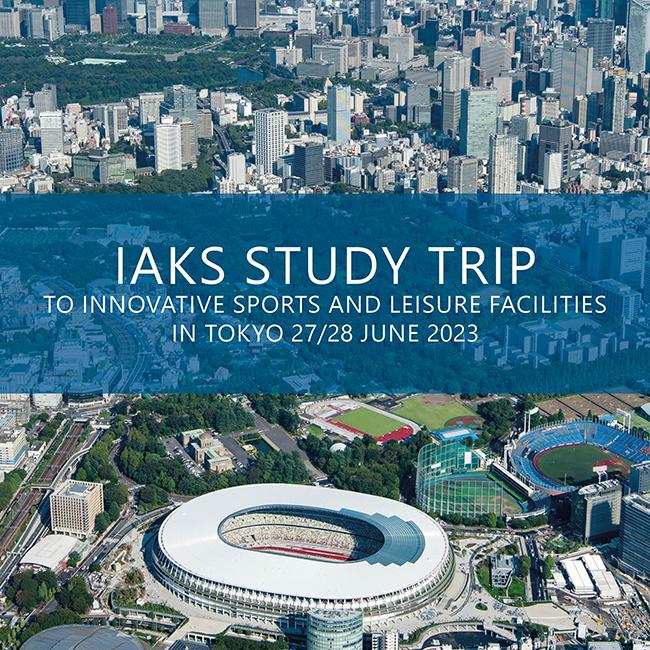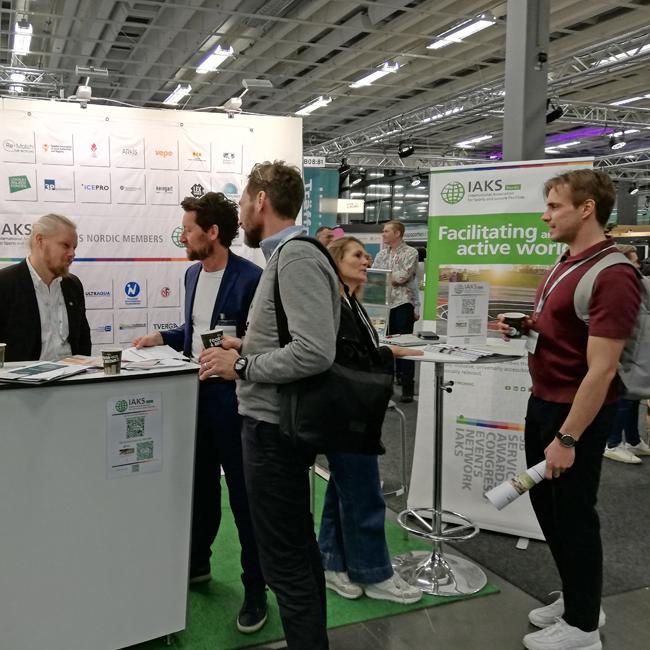A tour of the Hebburn Central multi-purpose facility served as a prelude to the International IAKS Swimming Pool Conference. Unlike many other countries, Sport England recommends in its strategy for sports facilities that community sports and non-sports facilities be combined (such as by having a medical centre with a sports hall).
In the case of Hebburn Central, the local library has been housed together with a sports pool, fitness centre and sports hall. The results achieved are extremely impressive. By combining previously separate community facilities, the municipality has been able to reduce the operating deficit to one-eighth of the previous figure thanks to cost synergies and much higher visitor numbers.
The international participants enthusiastically swapped ideas and experiences during the subsequent networking dinner in Newcastle’s historic centre.
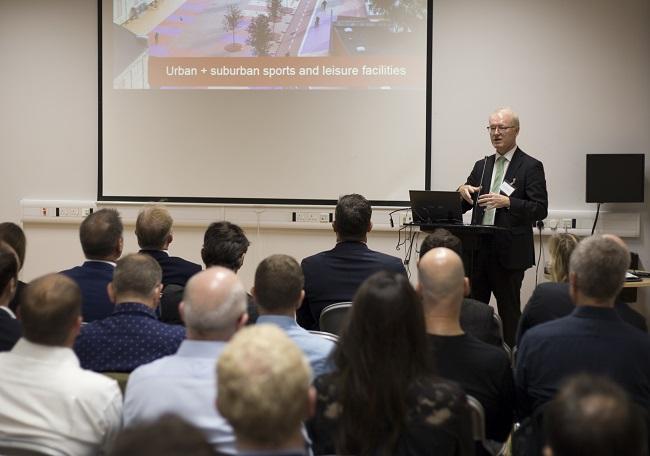
IAKS President Dr Stefan Kannewischer
photo credits: FaulknerBrowns
The very well-attended International IAKS Swimming Pool Conference, with 52 participants from eleven countries, began the next day at the Northumbria University Sports Central. Following a welcome address from Campus Director Damon Kent, IAKS President Dr Stefan Kannewischer presented the IAKS Future Trends 2020 for Sports and Leisure Facilities.
Michael Hall (UK), Leopold Holzknecht (Austria) and Ruth Pujol (Spain) spoke about best practice examples from three countries. They gave an interesting insight into the different approaches taken in various countries and the types of pools.
Ole Gronborg (Denmark/Sweden) shared new findings from technical research with the attendees, especially in relation to the complex interaction between water and air quality. During a podium discussion, three operators discussed international trends in pool design and operation: Gar Holohan (Ireland), Andreas Schauer (Germany) and François Mouilleron (France).

FaulknerBrowns Partner Michael Hall
photo credits: FaulknerBrowns
Following lunch, the participants could take a short tour of the university sports facility, with gym and sports pool. After this, Rainer Pethran (Germany) spoke about the importance of the public value of pools. He felt that instead of always just discussing deficits in relation to pools, their significant social value should also be mentioned. It must be possible to express this social value in monetary terms. Unfortunately, the relevant studies needed for this have only been conducted in the UK and Australia to date.
Marc Riemann (Germany) spoke about how KölnBäder applies digital work tools in the pool sector and discussed the digitisation of till systems with the participants.
It is increasingly important to integrate all target groups. Darryl Condon (Canada) explained the principles of inclusive design for pools. Especially good progress has been made in Canada with regards to social inclusion. For example, the design process for new sports facilities in Canada normally begins with workshops for local residents. This helps improve local by-in for facilities and leads to each district getting what it really needs. Multi-purpose community centres are also the norm in Canada.
Given the especially strict lifeguarding requirements in the UK, designing pools in which light is not reflected on the pool’s surface is very important. In an interesting joint presentation, Jo Talbert and Irina Korneychuk (both UK) outlined the lifeguarding requirements and the importance of natural lighting. These can also serve as ideas for countries without strict legislation.
The group of international participants was very happy with the interesting and varied programme. The International IAKS Swimming Pool Conference, held in this format for the first time, fully lived up to its claim to offer an exchange of knowledge and networking at an international level.

